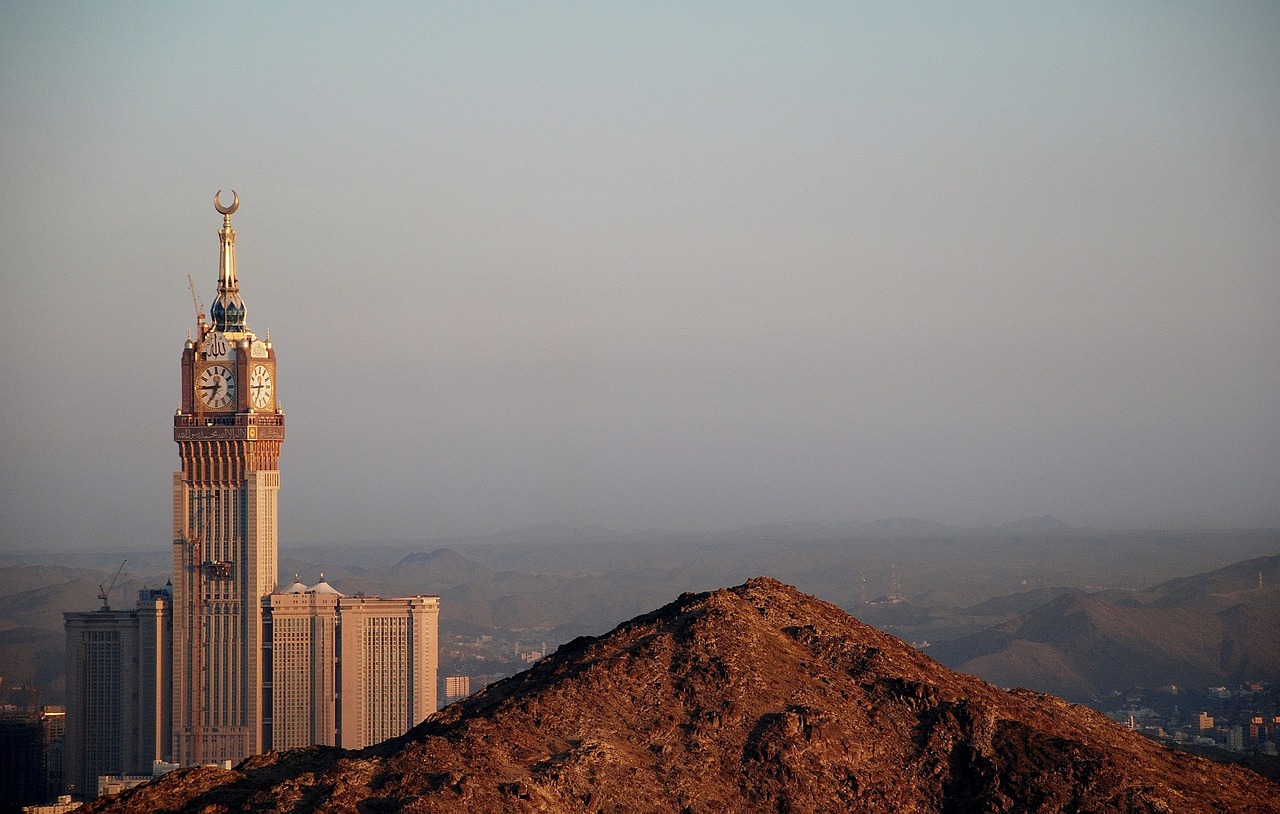

The heart of Islam, where millions unite in prayer and devotion.
Introduction
Umrah, known as the lesser period of pilgrimage, has significance in the Islamic faith. Unlike Hajj, which is performed during specific dates in the Islamic month of Dhul-Hijjah, Umrah can be undertaken at any time throughout the year. For Muslims globally, it serves as an essential opportunity to seek forgiveness from Allah, purify themselves from sins, and reaffirm their spiritual dedication. Engaging in Umrah during various months of the Islamic calendar can provide distinct experiences and advantages.
Understanding the Month of Safar
1. The Significance of Safar in Islamic Tradition
Safar is regarded as one of the twelve months in the Islamic lunar calendar. Historically, pre-Islamic Arabs viewed it as an unlucky month, linking it to misfortune and calamities. However, this belief has no basis in Islamic teachings. The Prophet Muhammad (peace be upon him) firmly rejected these superstitions, stating that no month or time is naturally unlucky. Islam teaches that all periods are created by Allah, each with its own significance and blessings.
For Muslims, Safar is as important as any other month, offering the same opportunities for worship, reflection, and spiritual growth. Performing Umrah during Safar is a meaningful act of worship that can bring great rewards and blessings, similar to those found in any other month.
2. Dispelling Misconceptions About Safar
One of the common misconceptions about Safar is that it is a month of bad luck or inauspicious events. Some people avoid making important decisions or undertaking significant actions, such as getting married or starting a new business, during Safar due to these unfounded beliefs. However, Islam categorically rejects the idea of bad luck and superstitions.
The Prophet Muhammad (peace be upon him) said, “There is no infection, no superstition, no owl, and no Safar” (Sahih Bukhari). This hadith clearly indicates that the month of Safar should not be viewed as a misfortune. Muslims are encouraged to engage in their usual activities, including worship, with full confidence in Allah’s protection and guidance.
The Spiritual Benefits of Umrah During Safar
1. A Time for Deep Spiritual Reflection
Performing Umrah in the month of Safar provides pilgrims with a unique opportunity for deep spiritual reflection. This time is typically less crowded than peak periods like Ramadan or the days leading up to Hajj, allowing for a more serene and personal experience at the holy sites of Makkah and Madinah. With fewer visitors, pilgrims can focus more on their prayers, supplications, and connection with Allah, without the distractions that often come with larger crowds.
The relatively lesser-known status of Safar as a time for pilgrimage allows pilgrims to enjoy a more peaceful atmosphere within the sacred grounds of the Haram. This peaceful environment can enrich the spiritual journey, enabling individuals to propose the significance of the rituals, seek forgiveness for past mistakes, and reaffirm their commitment to upholding Islamic values
2. Embracing the Sunnah of Continuous Worship
A core principle of Islam emphasizes the importance of consistent worship throughout the year, rather than confining it to specific times like Ramadan or Hajj. Performing Umrah during the month of Safar exemplifies this idea, underscoring the ongoing nature of a Muslim’s spiritual journey. Engaging in Umrah during a period not typically associated with large gatherings can be seen as a true expression of devotion and commitment to Allah.
Moreover, undertaking Umrah in Safar offers the chance to earn continuous rewards, as it involves traveling to Islam’s holiest sites and engaging in highly meritorious acts of worship. The Prophet Muhammad (peace be upon him) encouraged the regular performance of Umrah, noting that it helps to erase sins and alleviate poverty, much like how a blacksmith’s bellows purify iron of its impurities (Sahih Bukhari).
3. A Chance for Spiritual Renewal and Transformation
Umrah is often seen as a pilgrimage that fosters spiritual rejuvenation. For many pilgrims, the experience of visiting the Kaaba, performing Tawaf (the act of circumambulation), and engaging in the various rituals associated with Umrah is deeply transformative. It provides an opportunity to set aside the distractions and shortcomings of everyday life, allowing individuals to focus entirely on their relationship with Allah.
Embarking on Umrah during the month of Safar can be particularly beneficial for those seeking personal renewal, as the holy sites are generally less crowded during this period. The tranquil atmosphere of the Haram in Safar encourages uninterrupted worship, allowing pilgrims to engage in deep reflection, repentance, and spiritual growth. This time of contemplation can lead to a significant transformation, as pilgrims return home with a renewed sense of purpose and a stronger commitment to their faith.
Practical Advantages of Performing Umrah During Safar
1. Less Crowded and More Accessible
One of the most practical benefits of performing Umrah during Safar is the reduced crowd size. Unlike the busy periods of Ramadan or the days leading up to Hajj, Safar is a quieter time for the holy cities of Mecca and Madinah. This means that pilgrims can perform their rituals with greater ease and comfort, without the challenges of navigating through large crowds.
The reduced crowd size also means that pilgrims can spend more time in prayer and reflection at the Kaaba, in the Prophet’s Mosque in Madinah, and other significant sites. The overall experience is often more relaxed and less rushed, allowing for a deeper connection with the spiritual aspects of the pilgrimage.
2. Affordable Travel and Accommodation
Performing Umrah in the month of Safar can be a cheaper option compared to peak travel times. Airlines, hotels, and travel agencies often offer low prices during these off-peak periods, making it a more affordable choice for pilgrims. This is especially beneficial for families or individuals who are worried about their budgets.
The availability of more affordable travel and accommodation options during Safar enables a broader range of Muslims to participate in the Umrah pilgrimage. This inclusivity allows more people to experience the spiritual benefits of this sacred journey, regardless of their financial situation.
3. Easier Access to Religious Sites
During busy times, the holy sites often face considerable crowds, which can restrict access to certain areas and reduce the time available for prayer. Umrah in the month of Safar allows pilgrims easier access to the main religious sites.
For example, pilgrims may find it easier to touch or kiss the Black Stone (Hajar al-Aswad) at the Kaaba, perform Tawaf at a more relaxed pace, and pray in the Rawdah (the area between the tomb of Prophet Muhammad and his pulpit) in the Prophet’s Mosque in Madinah. These experiences can be deeply spiritual and are more accessible during less crowded periods, such as Safar.
Conclusions
Performing Umrah in the month of Safar offers a unique chance for spiritual reflection, personal renewal, and various practical benefits. Contrary to some misconceptions about Safar, it is a month in Islam that provides the same opportunities for worship and personal growth as any other. The Umrah package from India ensures more affordable travel options, less crowded areas, and a serene atmosphere at the holy sites during this time, making it an ideal period for pilgrims seeking a deeper and more personal connection with Allah. Umrah in Safar is closely tied to the pilgrim’s intentions, commitment, and faith in Allah’s mercy.






